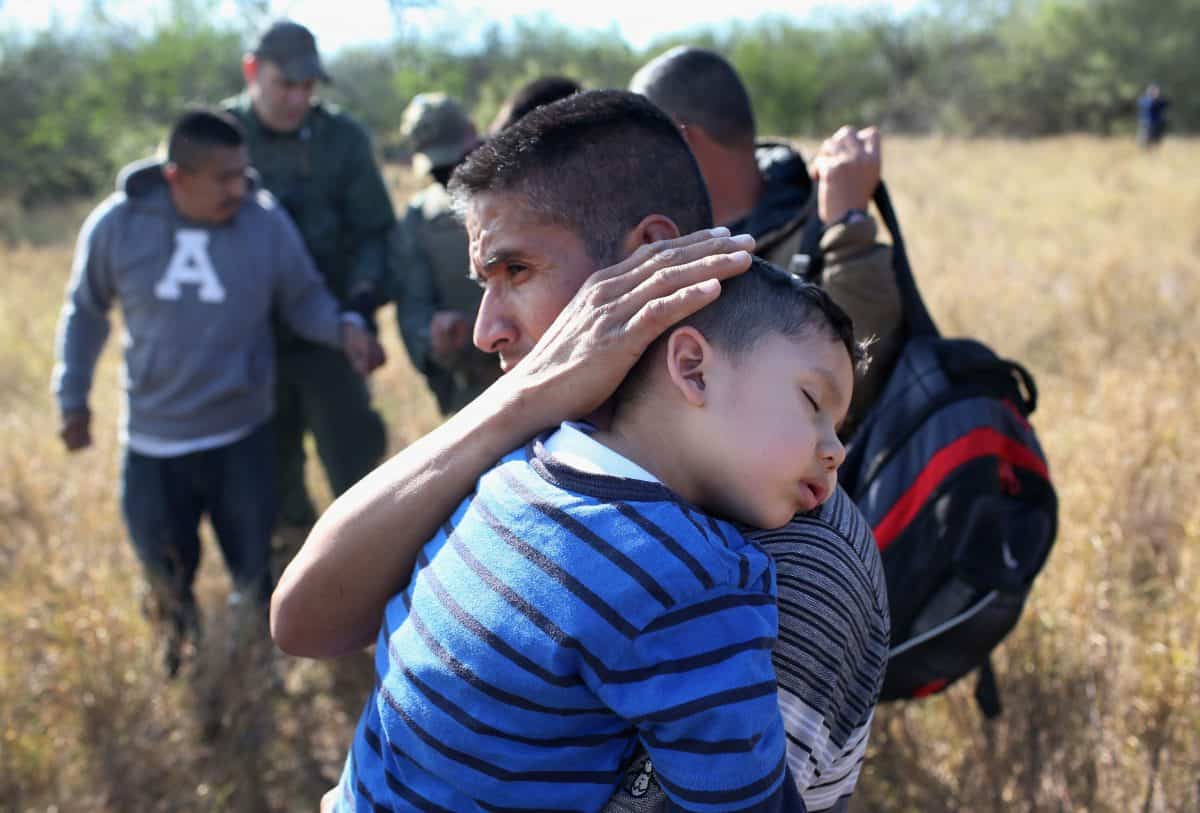Dozens of children and adolescents melt into long hugs with their parents at a shelter in Quetzaltenango. Their perilous journey alone to the United States as migrants has just ended in failure after their deportation from Mexico to Guatemala.
From the white bus with Mexican license plates that parked Thursday in front of the state-run Nuestras Raíces shelter in Quetzaltenango (southwest), a four-hour drive from Guatemala’s capital, 59 repatriated minors disembarked.
“These 14 days that we were without seeing her, without knowing anything, it was terrible,” says José Mauricio, 33, who is waiting for his 16-year-old daughter.
Their identities are being withheld. José’s daughter left her hometown of Coatepeque a month ago and they found out that she had been detained in Mexico for 14 days. She made the trip with a cousin, and both were deported.
The authorities identified the minors, located their parents by telephone and summoned them for an interview to confirm the relationship.
When José sees his daughter, he holds her tightly to his chest. Despite the pain of having to separate, José believes that there is no choice but to migrate from this country where 60% of its 17 million inhabitants live in poverty.
“In Guatemala there is no way she can survive with her studies. It was the decision that was made for her to be someone important in life. It was difficult, it is the only option because here it is not possible,” laments the father.
Minors are the most vulnerable migrants, according to Save The Children: “The migration crisis in Latin America and the Caribbean is impacting tens of thousands of children and adolescents who, leaving their countries unaccompanied by a responsible adult, become one of the most vulnerable groups exposed to threats and violations of their rights.
A U.S. federal judge decided Friday to maintain the validity of Title 42, a decree of former President Donald Trump’s administration that allows the immediate expulsion of migrants seeking asylum at its southern border.
Title 42 does not apply to unaccompanied minors (unless they are Mexican), which is why many Central Americans choose to send their children alone to the United States in search of a better life.
They suffer a lot
Although they do not admit it in public, parents comment that they pay up to 150,000 quetzales (almost $20,000) for their children to migrate. To do so, they get into debt or a family member from the United States finances the operation.
The rates depend on the type of amenities. “They offer with hotel, without hotel, there is a variety,” says Maripaz Lopez, the person in charge of the shelter, according to what she hears from the migrants. Some travel packages include three arrival attempts.
But along the way there are endless hardships. “They suffer many situations, they are left without food, they walk at night (…) They suffer a lot, they suffer from robbery, assault, aggression and sometimes sexual violence,” says Lopez, who each week receives about 150 deported minors at the shelter.
This group of deported minors was found in “safe houses,” homes where human traffickers hide undocumented migrants until they can get them across the U.S. border.
Lopez says that when things go wrong, the smugglers call family members living in the United States to extort money and, when they get the money, turn the child over to Mexican immigration for deportation.
One of the rescued groups went so far as to tell how the traffickers placed tigers on the door of a safe house.
“We had some very difficult cases,” admits Lopez.
Separating families
Norma Pérez, 32, lives in the United States and managed to send her seven-year-old daughter from Guatemala. When the operation failed, she had to travel to her native country to receive her at the shelter.
“It didn’t happen, I was waiting for her there, I don’t think I would try again. A great sorrow was removed from my heart, I saw her and she is fine. For her I left and for her I am here,” he says.
The goal of traveling is to pursue those dreams, he says. “But on the road we don’t know what is going to happen, many risk their lives,” Perez says.
“You feel worried when you don’t hear from him, but the moment you know he is coming back you feel happy because they are healthy and well,” says farmer Lorenzo Rodríguez (49), who is waiting for his 15-year-old son.
Rodríguez is from the town of Canillá, in the Quiché region, one of the poorest areas of the country.
“One lives through a very critical calamity and that is why one decides to go somewhere else. Not everyone is lucky. For those who are lucky, they manage to get through, others find death,” he says.
“Do not be fooled by the American dream, because the American dream is currently separating families,” says the shelter manager.






